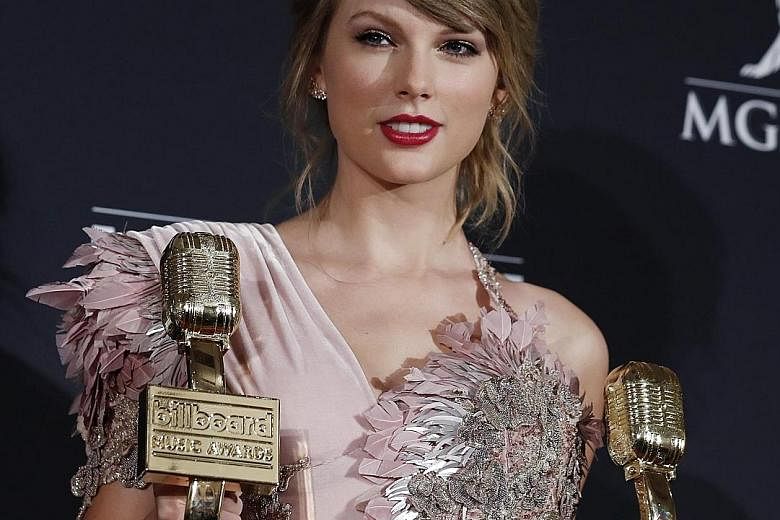NEW YORK • The big boys are getting nervous. For decades, the path to stardom in the music industry has usually gone through a major record company.
Almost every artist today who reaches the top of the charts - whether Kanye or Adele, Beyonce or Drake - has got there with help from one of the three conglomerates that control around 80 per cent of the business: Universal, Sony and Warner.
Now, Spotify is experimenting with another approach.
Over the last year, the 12-year-old company has quietly struck direct licensing deals with a small number of independent artists.
The deals give them a way onto the streaming platform and a closer relationship to the company - an advantage when pitching music for its influential playlists - while bypassing the major labels.
Although the deals are modest - with advance payments of tens or hundreds of thousands of dollars - the big record companies see the Spotify move as a potential threat.
Spotify, a Stockholm company that went public in April, has not revealed which artists it has made deals with. According to sources, it has paid advances to companies that represent artists who are not signed to a record label.
For now, that means up-and-coming acts and older artists who have gained control over their hits.
Spotify is offering two advantages: a bigger financial cut and ownership of their recordings.
The deals are not exclusive, leaving the artists free to license their songs to other streaming companies like Apple Music and Amazon.
Spotify typically pays a record label around 52 per cent of the revenue generated by each stream, or play, of a given song. The label, in turn, pays the artist a royalty of anywhere from 15 per cent to 50 per cent of its cut.
By agreeing to a direct licensing deal with Spotify, artists and their representatives are able to keep the whole payout.
With its 83 million subscribers, the service can offer significant exposure to artists without asking them to give up something that traditional record companies demand as part of any deal: ownership of their recordings.
Taylor Swift will become a free agent this year after the expiration of her deal with Big Machine, an independent label in Nashville that is distributed by Universal. She is said to be seeking a deal that would give her ownership of her recordings.
Spotify's decision to forge closer relationships with artists comes with a big risk, however. In the end, it may not be worth antagonising the labels that the company depends on, said Ms Amy Yong, a media analyst at Macquarie.
"They are treading carefully. They do not want the Big Three to shut them out from their library of content for the sake of signing deals with up-and-coming artists at a higher margin. That's not an economic trade-off that you want to do," she noted.
The major labels have signalled their disapproval. Through anonymous comments in news articles, executives have said they could punish Spotify by withholding the licences it needs to expand to India.
The labels have also suggested they will be unwilling to compromise with Spotify as its contracts with the labels expire over the next year.
NYTIMES

